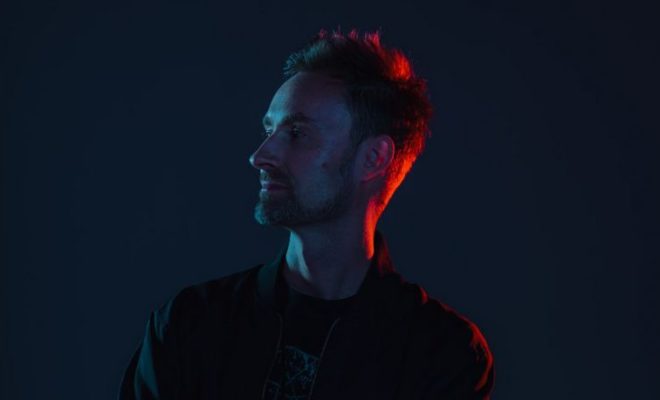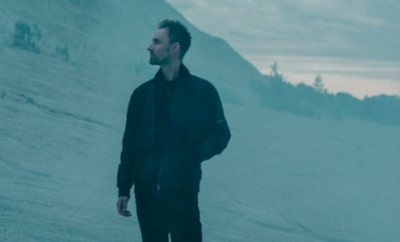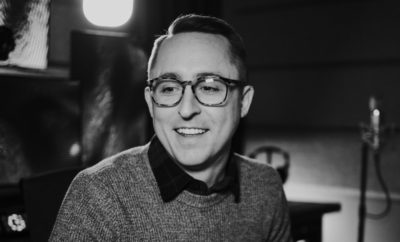 Siiri Kumari
Siiri Kumari
Interviews
Robot Koch – The Next Billion Years
By: Jamie Steinberg
Q) What was the reasoning behind naming this album The Next Billion Years?
A) The album is themed around the future of mankind on this planet, inspired by a cassette I found in a 2nd hand store in LA, which contained a previously unknown speech from marine biologist Jacques Yves Cousteau. On this tape Cousteau speaks about the next billion years and how our actions today determine the survival of our species. This inspired me to write a whole album based on the idea of the far distant future.
Q) What are some themes that you will be exploring on it?
A) I think the answer above answered this one. [smiles]
Q) How did you come to work with conductor Kristjan Järvi on the album?
A) I saw Kristjan`s performance at the Philharmonie in Berlin and loved it. I loved the forward-thinking approach to his way of conducting, very unconventional and yet so much serving the music. I knew then that I wanted to work with him. We also had a few meetings and found out that we not only share a common love for music but also for spirituality and the metaphysical. Being in Estonia had a big influence on the album, having the chance to experience the nature and interact with people (both in the studio and outside) made me very inspired. So, I took that feeling with me to Berlin where I finished the work on the album.
Q) The song “Kassel” is very catchy – was this your intention from the start when writing and creating the track?
A) Kassel is a heartfelt homage to the city I grew up in. My memories of growing up in the countryside close to this mid-sized town, close to a forest and vast fields infused this song. It feels like a warm blanket, slightly melancholic and has a sense of nostalgia and homecoming. On a bigger picture it is also a song about earth being our collective home that cares for us and that we should care for as well. Written on my mother`s piano the song was co- orchestrated by Viktor Orri Arnason, who previously worked with Johann Johannson (Arrival) and Hildur Guðnadóttir (Joker).
Q) What were some of the challenges you faced when writing and recording the album?
A) I`ve never worked with a full orchestra before, so it was a steep learning curve for me. The whole process was rather new to me and involved some challenges just by stepping into a new territory, out of my comfort zone. It involves a big team and lots of communication, so it really was a group effort. I`m grateful to have had the opportunity to work with such a great team, despite all the challenges.
Q) How does this album show how you’ve grown as an artist?
A) I kept developing my sound over the years. I never got too comfortable with it and always kept pushing for new grounds. My music became more atmospheric and cinematic over the years. It´s the kind of music I always wanted to make, but I didn’t have the means or skills to do it until now. I think personal development and artistic development are closely linked, so overcoming some self-limiting thoughts and fears on a personal level helped to come closer to a full artistic expression as well. But it’s always a process, always a journey. It doesn’t mean that now I have reached a level that I want to get comfortable in. I want to keep exploring the musical universe, so I’m excited to see where I’ll go from here. Trusting my intuition has been really helpful, both on a personal and artistic level.
Q) What songs on the album were some of your favorite to record?
A) One of my faves is “Manipura.” It’s one of the first songs I made for the album. I wanted this to be the opener. It sets the tone for the whole record for me. It’s the longest piece on the album. To me, it was almost a meditation working on it. I recommend listening on headphones. That’s how I created the track and that`s how it’s meant to be listened to, ideally. Preferably with eyes closed.
I also like “Stars as Eyes” a lot, a collaboration piece with Viktor Orri Arnason, who is a great artist and composer as well as a fantastic orchestrator and violinist. His credits include work for Johann Johannson, Hildur Guðnadóttir and Olafur Arnalds. It was great to develop this piece together. Fun fact: what sounds like a vocal choir humming is actually a violin, played really softly. But really, it’s hard to choose my faves. I’m really happy with all of them.
Q) How did you shake off a long day in the studio?
A) A long walk in nature or some yoga.
Q) During this time of COVID-19, what message do you hope this album The Next Billion Years brings to your listeners?
A) It’s a time that allows for insight and self-searching as well as for bigger questions like “where are we going?” both on a personal level and as a global community. I hope the album can be a companion during this time, providing some healing on a deeper level and creating a feeling of connectedness. I recommend meditating and listening to it. Or during a walk-in nature.
Q) What advice would you give to a young artist who is trying to get into the music industry?
A) It’s difficult, but it’s also liberating to be a young artist nowadays. I think finding your own voice by trusting yourself is super important. Don´t compare yourself to others or their careers. Social media can be deceiving and soul destroying. So, focus on your own art and not on what other people do or pretend to do. If the music is good and there is a genuine intention behind it, it will find its audience. It takes time though. I’d also say patience is important. Things don’t happen overnight. I’d say make music your daily practice and enjoy that. This will help you grow. And, lastly, connect with others, see how your community or friends or a network of other artists can help and how you can help them. We grow together.





You must be logged in to post a comment Login